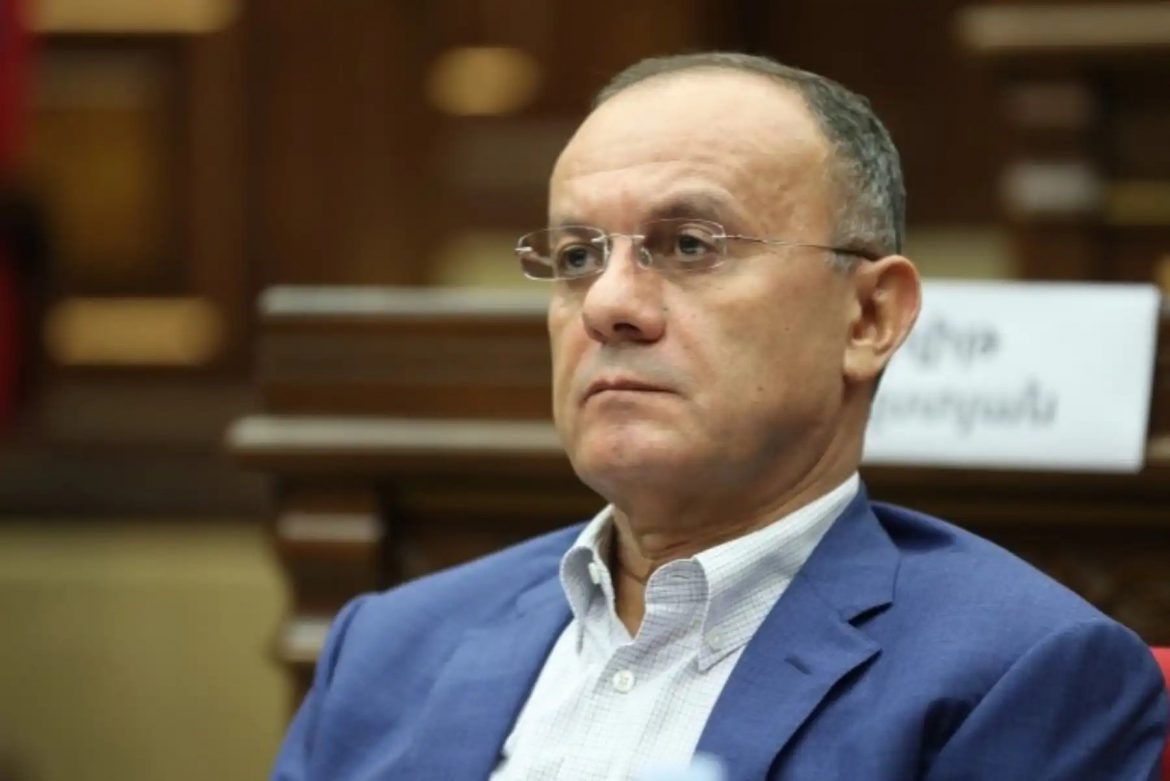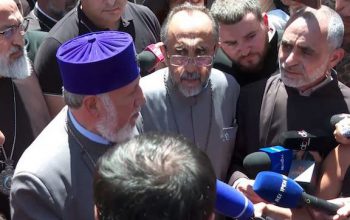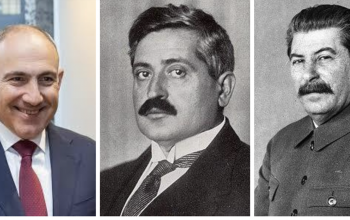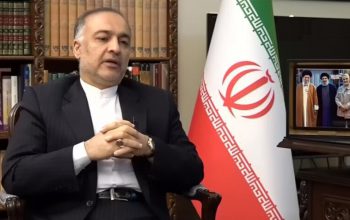Just one week after Prime Minister Nikol Pashinyan openly threatened to jail opposition leader Seyran Ohanyan, the Armenian government escalated its campaign of political persecution by finalizing a controversial criminal investigation into Ohanyan’s son, Colonel Artur Ohanyan—a decorated officer who led troops during the 2020 war in Artsakh.
The timing of the announcement, issued by the Prosecutor-General’s Office on Wednesday, reinforces what many in the ARF-led Hayastan alliance consider blatant political retaliation against those who challenge Pashinyan’s failed and corrupt rule.
Seyran Ohanyan, leader of the Hayastan parliamentary faction and former defense minister (2008–2016), has been a vocal critic of Pashinyan’s dangerous concessions and repressive tactics. He condemned the investigation into his son as an attempt to intimidate him into silence.
Colonel Artur Ohanyan is one of several officers targeted for their role in an October 2020 counteroffensive against Azerbaijani forces. The operation was launched ten days into the war, under intense pressure and with limited support—decisions shaped not by field commanders but by the country’s political leadership.
Lieutenant-General Jalal Harutyunyan, then commander of the Artsakh Defense Army, had also been charged in the same case in 2022. But after a yearlong investigation, military experts cleared him of wrongdoing. The charges against Ohanyan, however, remain—highlighting a clear double standard and suggesting political motivation.
According to the Investigative Committee, the counterattack was ordered despite unfavorable conditions, including the lack of intelligence and air support. Yet General Harutyunyan’s lawyer, Arsen Sardaryan, stated unequivocally in June 2023 that the offensive was approved by none other than Prime Minister Pashinyan and then-Chief of the General Staff Onik Gasparyan. If blame is to be assigned, Sardaryan argued, it should begin at the very top.
Pashinyan, predictably, downplayed his role in 2021, claiming that “the operation was proposed by a general and deemed acceptable by a general.” But his attempts to deflect responsibility do not hold up under scrutiny—especially when contrasted with his ongoing efforts to scapegoat military officers who risked their lives in service of the nation.
In the National Assembly last week, Pashinyan responded to corruption allegations by Hayastan MPs with personal attacks and threats. “You must be the first to go [to prison] and you will go,” he shouted at Ohanyan, before resorting to vulgarity, calling the retired general a “moron.”
Ohanyan, showing restraint and dignity, declined to discuss the case in detail, stating only that his son “simply participated in that counteroffensive” and did not lead or plan it.
This pattern of harassment fits a broader trend under Pashinyan’s rule: persecuting dissenters, demoralizing the armed forces, and weaponizing state institutions to suppress opposition. Rather than address the real failures of the 2020 war—failures rooted in political indecision and poor leadership—Pashinyan is targeting those who stood their ground.
The ARF-led Hayastan alliance remains unwavering in its defense of national dignity and the truth. As the regime scrambles to rewrite the past, the opposition continues to hold firm, demanding real accountability—not for those who served—but for those who betrayed them.




